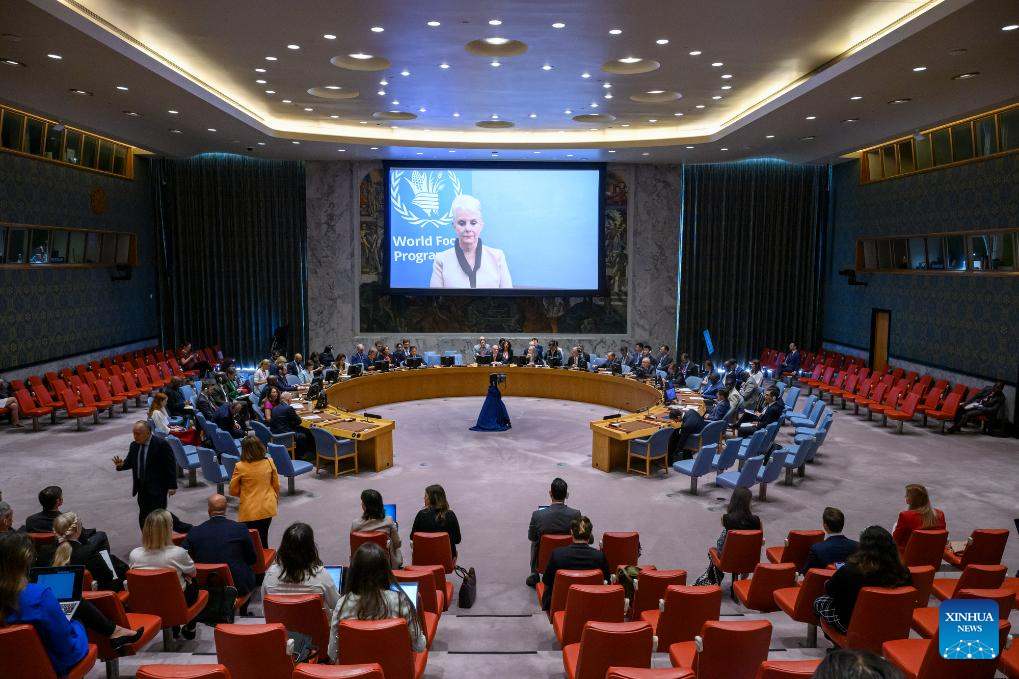
World Food Programme (WFP) Executive Director Cindy McCain (on screen) speaks at a Security Council open debate on advancing public-private humanitarian partnership via a video link at the UN Headquarters in New York, on Sept. 14, 2023. McCain on Thursday stressed the importance of public-private partnership in UN humanitarian work. (Loey Felipe/UN Photo/Handout via Xinhua)
UNITED NATIONS, Sept. 14 (Xinhua) -- World Food Programme (WFP) Executive Director Cindy McCain on Thursday stressed the importance of public-private partnership in UN humanitarian work.
"As we confront the new reality of sustained humanitarian needs and shrinking budgets, it's time to rethink how we engage and find new models for cross-sectoral partnerships," McCain told a UN Security Council open debate on advancing public-private humanitarian partnership.
She said business leaders' help is needed to develop the smart innovations and solutions required to build resilience and tackle the root causes of hunger and poverty, so as to reduce humanitarian needs over the long term.
Reducing poverty and hunger is a necessary precondition for healthy workforces, functioning markets, and sustainable economic growth and prosperity, she said.
"But there is still so much more the humanitarian, private and public sectors can achieve by working together in partnership: powering innovation in science and technology, building new capacities and sharing expertise and acumen, mobilizing the resources and political will needed to confront the new reality we are living with," said McCain.
Demand for WFP services is rising relentlessly, as war, economic turmoil and climate change and environmental degradation are driving millions of people into poverty and despair each year, she said.
WFP estimates put nearly 47 million people in over 50 countries in a stage of hunger one step from famine, and the number of children caught in the grip of starvation is overwhelming: a staggering 45 million under 5 years old are now estimated to have acute malnutrition, she noted.
"We are now living with a series of concurrent and long-term crises that will continue to fuel global humanitarian needs. And this is happening just as funding for humanitarian relief operations is drying up. At the WFP, we have had to make the agonizing choice to cut food rations for millions of vulnerable people. More cuts are on the way," she warned.
McCain called for efforts to ramp up the ambitious, multi-sectoral partnerships to tackle hunger and poverty effectively and reduce humanitarian needs over the long term.
She called on the Security Council "to be resolute in using its powers and influence to create the broader conditions that will allow public-private partnerships to flourish."
Member state governments should also use their convening power and public policy levers to create a conducive environment for public-private partnerships. The international financial institutions can support these efforts with capital finance, especially in relation to fragile states. And the private sector must step up and embrace its responsibility to help build the societies that enable their enterprises to succeed, she said.
"The road ahead is long, and the challenges are daunting. But we still have an opportunity to halt the relentless growth in global humanitarian needs. With determination, innovation, and, above all, cross-sectoral collaboration, we can successfully navigate our way through this new and challenging landscape and bring new hope to vulnerable communities around the world," said McCain. ■



